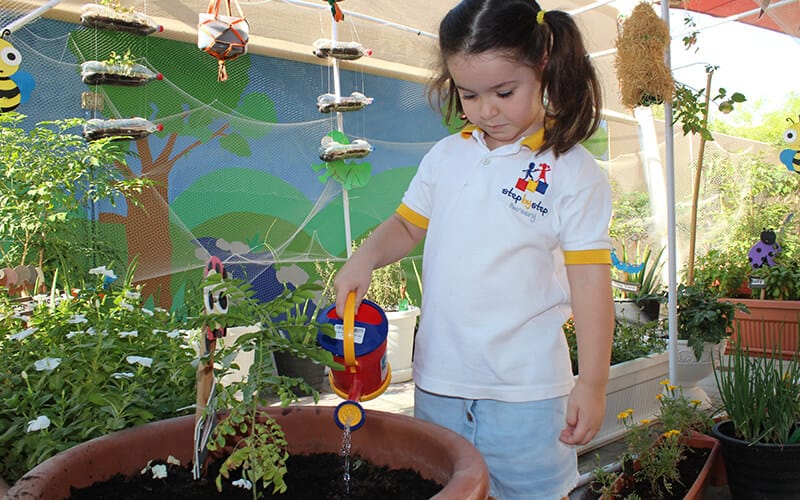- Researchers says that up to 80% of the things we throw away could be easily recycled or composted.
- 1 recycled tin can would save enough energy to power a television for 3 hours.
- 1 recycled plastic bottle would save enough energy to power a light bulb for 3 hours.
- Making 1 new can uses the same amount of energy it takes to recycle 20 drinks cans.
- 1 recycled glass bottle will save enough energy to power a computer for 25 minutes.
- There are over 80 billion aluminium cans used each and every year around the world.
- If we recycled all newspapers, we could save over 250 million trees each and every year.
The list goes on and on. These facts absolutely blow our mind and remind us of the importance of teaching the younger generation how to recycle and placing an emphasis on the need to recycle. Recycling is the perfect way to start teaching your child about the environment and the importance of loving our Earth and taking care of it. It is also a great way to get the whole family to participate and work together for a cause. Telling your child to recycle is easy but teaching them why you are doing it and the consequences of not recycling is vital for our future generations.
Here are a few tips to help you “go green” at home.
Start at An Early Age
Start teaching your child to recycle at an early age so that it becomes a habit they grow up with. Set up recycling bins in areas in which your child can see you using them. Point out what you are doing and start using language as early as possible – for example, “The plastic bottle goes in this blue bin for recycling” and “this paper goes in the red bin for recycling”
Practice What You Preach
If you’re not recycling yourself, it will be hard to convince your children that is an important thing to do. Children often imitate what their parents do so if you want to encourage your child to recycle then you should be recycling too.
Make Personalized Bins
Have bins for plastic, paper and glass and decorate the bins with your children. Place colorful pictures of what will go inside the bin and let them get creative with other decorations. On a weekly basis, check the bins together to see how much you have been able to recycle. Remember to place them in a place that is convenient and easily accessible for everyone.
Know What You’re Teaching Them
As with all concepts that you introduce to your child, be ready to bombarded with questions. Do your research, read some books or articles and be ready to answer their questions – expect things like “why do we recycle?”, “how do they recycle these?”, “why can certain materials not be recycled?”. Remember, questions mean that your child is showing interest in the topic so always answer eagerly, turn it into a conversation and make sure that if you don’t know the answer to their questions, that you try to find out and get back to them. You can even sit with them and watch videos online or read articles out loud to them to spark their interest.
Visit a Recycling Plant
What better way to teach your child how to recycle than by showing them what happens to the material afterwards.
Reuse Materials
There are different ways to add to environmental education. You can make compost with your child by showing them how waste materials can be transformed into garden soil. This is a great way to teach them how to recycle while also bringing them so close to nature.
You can also go through their clothes and toys and, together, choose the ones they never use. You can have a garage sale or even donate them to charities for other children to use – either way, it is a great and interactive way to show children how to recycle.
Light Pollution
Switch off lights around the house when they are not needed and make a habit of it. Say it out loud when you are switching them off and as your children get older, take turns putting them in charge of making sure the lights around the house are switched off.
Planting a Garden
Gardening is fun, a good sensory activity and a really nice way to interact with your children while bringing them close to nature. It also helps to develop a respect for nature. Let them get messy and enjoy planting seeds, teach them how to water the plants and the importance of doing so and you can even plant vegetables and herbs that you can eat together.



